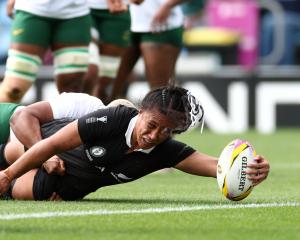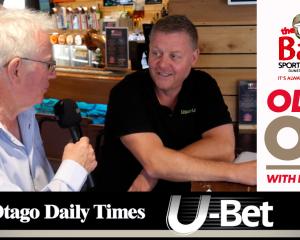Sports clubs and active families are telling a similar story in the modern economic climate.
The rising cost of sport — to go with fuel, food, power and other sectors — is now one of the most significant challenges facing communities across New Zealand.
The 2025 National Sport Club Survey reveals a fear rising costs could threaten the affordability of community sport.
Compared to pre-Covid figures, the number of community sports clubs reporting financial deficits had doubled, the survey revealed.
Rising costs for facilities, insurance and general operations were putting pressure on budgets.
The survey, the results of which are released while the Online Casino Gambling Bill is before Parliament, found that grant funding remained a vital part of the financial picture, accounting for about one-fifth of a club’s annual income on average.
More than half of clubs receiving grants relied on gaming machine trusts, far more than any other funding source.
For families, affordability was becoming a major barrier to participation.
Clubs reported in the survey that members were cutting discretionary spending, seeking payment plans and, in some cases, withdrawing from sport altogether.
Many clubs were exploring ways to contain costs, including sharing facilities, leasing space to other codes, swapping uniforms, and relying heavily on volunteers to perform maintenance and administration tasks. Others were scaling back programmes or reducing service levels to avoid raising fees.
Financial pressure (both for clubs, and as reported by New Zealand households more generally) was possibly also contributing to growing concerns about participant behaviour.
About 33% of clubs reported problems with "inappropriate" or "concerning" verbal behaviour during sports activities, while 21% cited issues with physical behaviour.
A significant number of clubs (15% overall) said incidents or poor behaviour had increased in the past five years.
The survey reported an increase in membership overall, despite about one in five clubs noting their membership had declined in the past year.
Larger clubs were more likely to report growth, while smaller or more rural clubs continued to face membership challenges, or in some cases had chosen to amalgamate.
Club volunteer numbers had slightly improved in this year’s survey but continued to be well below pre-pandemic levels.
Project co-lead Mel Johnston said the survey findings provided an important reminder of both the strength and strain within New Zealand’s community sport system.
"The data shows a sector that is deeply resilient but under pressure.
"Clubs continue to create opportunities for connection, wellbeing and participation despite increasing financial and social pressures. Supporting the people who lead and sustain these organisations must remain a priority if we want community sport to continue thriving in the years ahead."
Now in its eighth year, the National Sport Club Survey provides a comprehensive national snapshot of the management, governance and operation of sport clubs in New Zealand.
Conducted in partnership with the New Zealand Amateur Sport Association and the AUT Sport Performance Research Institute of NZ, the 2025 survey engaged clubs from across all regions and over 80 sport codes. — Allied Media












